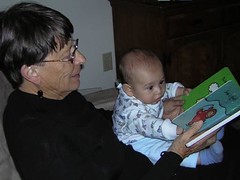
Do not be fooled--this hefty picture book is not a light read, nor a young child's pleasant accounting of the civil rights era in America. Instead, it is a meaty, well-researched and exciting account of a little known but historically significant act by a teenager in Montgomery, Alabama.
A year before Rosa Parks made her historic stand by refusing to give up her seat on a bus in that city, Claudette Colvin was dragged from a bus when she dared to challenge the segregated seating rules. Although her family and friends supported her, she was dismissed as a potential leader in what was to become the Montgomery bus boycott. Undaunted a year later, she joined a class action suit against the city in what was to become a landmark court case which overturned segregation in tranportation.
Based on extensive interviews with Claudette Colvin and others directly involved, the author presents the first in-depth account of this major, yet little-known civil rights figure. Many chapters are written from Ms. Colvin's perspective. This is a fantastic read for interested teens. The archival photos and newspaper articles give a contemporary feel to the accounting of historic events.
Claudette Colvin was the recipient of the 2009 National Book Award for young adult literature.






